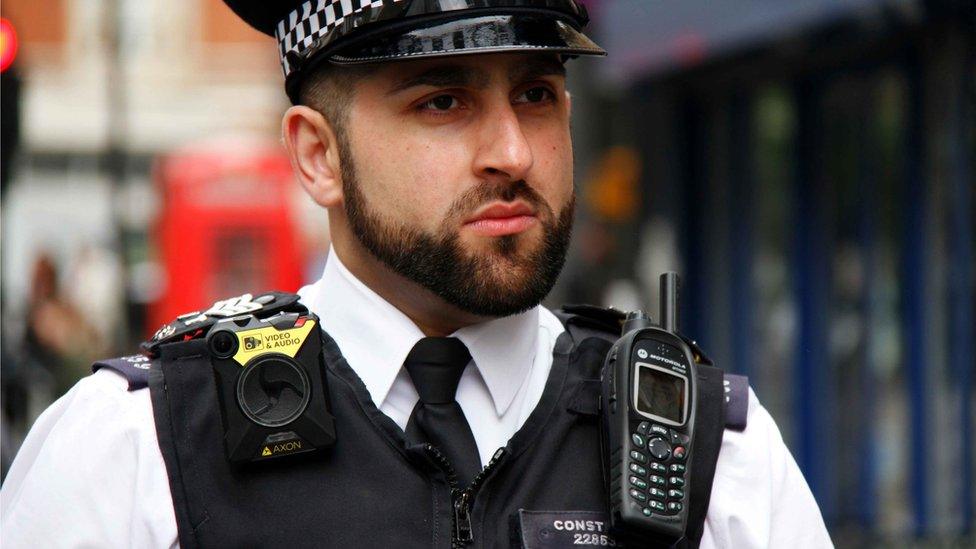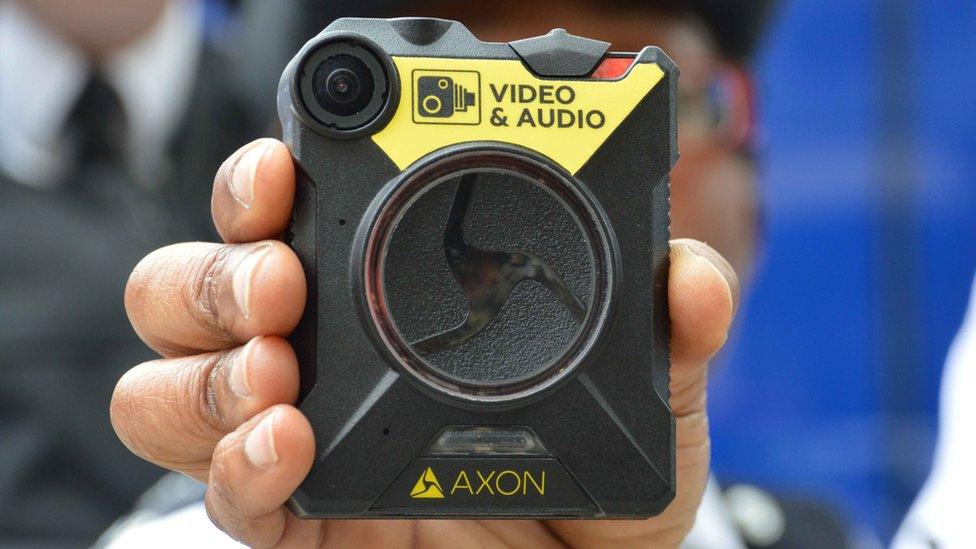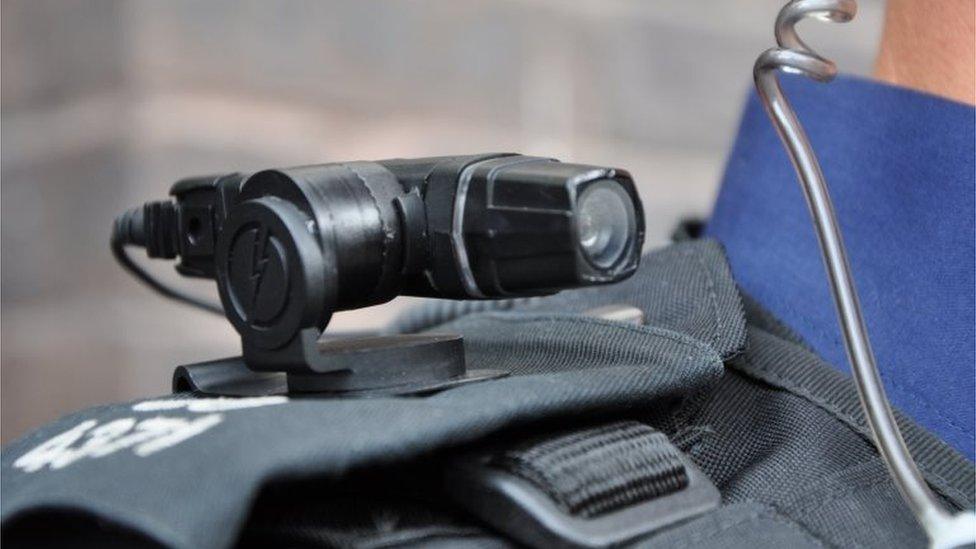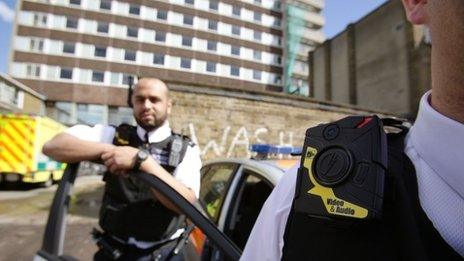Metropolitan Police body-worn cameras rolled out
- Published

Body worn cameras would be rolled out to most uniformed Met Police officers, the force said
The Metropolitan Police Service is adopting body-worn cameras across most of the force - believed to be the largest-scale use in the world.
In total, about 22,000 front-line police officers in the force will be equipped with them.
It comes after an 11-month trial in 10 London boroughs.
A recent study, external suggests they can help reduce the number of complaints against officers.

The Met Police said it had tested various locations for the cameras to be worn by officers
The police watchdog, the Independent Police Complaints Commission, said it supported body-worn cameras as an effective policing tool but recognised there were limitations for their use as well.
It said: "Video footage shows only one angle of an incident, from one officer's point of view. It is not the only piece of evidence to consider. Officers should also be aware of potential privacy concerns, and technological limitations."
In relation to the non-fatal shooting of Nathaniel Brophy in Clapham on 21 August, the IPCC said body-worn cameras were not fit for purpose for firearms officers because the positioning of them on officers' bodies had obscured filming and had a negative impact on the quality of the footage obtained.
Their use however is credited with a rise in early guilty pleas in domestic abuse cases because offenders are aware their actions have been recorded, the Met said.
Body-worn cameras will now be issued in phases to uniformed officers in 32 London boroughs.
The College of Policing said there was no evidence to suggest wearing the cameras changed officers' behaviour towards the public and had no effect on the number of stop and searches carried out.
Data from the cameras was automatically uploaded to a secure server and deleted after 30 days, unless required as evidence, the Met said.
Commissioner Sir Bernard Hogan-Howe said: "Body-worn video will support our officers in the many challenging situations they have to deal with, at the same time as building the public's confidence.
"What we do every day will be seen by the public - that has to be good."
Mayor of London Sadiq Khan said the technology was a "huge step forward" in encouraging trust and confidence in community policing.
- Published29 September 2016

- Published19 October 2015
